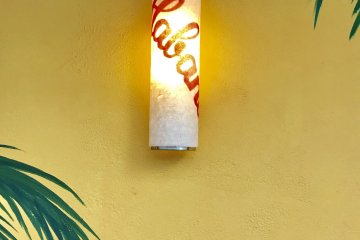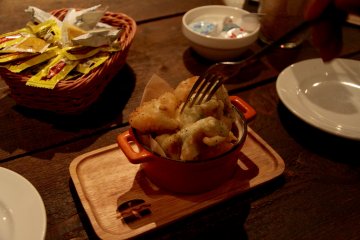If you’re looking to decorate your body with some unique yet distinctly Japanese tattoo designs, Studio Muscat might just be the right destination for you. Muscat is run by the effervescent Asao-san in the heart of Tokyo, in a quiet residential area just south of Shibuya. First opened in 2003, Muscat's studio interior is an impressive canvas of modern Japanese aesthetics, and welcomes both those looking to expand their collection as well as those getting their first tattoo.
Asao-san applies tattoos to her clients, alongside three fellow Japanese artists: Haruka, Shinya and Eiji – who collectively offer a wealth of experience and individual styles. Those wishing to visit Muscat will need to arrange a booking in advance, which involves a consultation to help decide what design you want. No matter what you are looking for, Muscat offer a wide range of designs across multiple styles including Japanese, artistic, tribal, watercolour, geometric and dotwork approaches. Of course, they can help you choose too.

Why not opt for a more symbolic souvenir from your next trip to Japan? From cherry blossom scenes, Koi carp and Hokusai-inspired waves, to Japanese calligraphy and traditional imagery – Muscat can tailor any design to your ink needs.
Their staff excel at handling English enquiries and customers – many of whom indeed visit from overseas during the course of their Tokyo trip. Free Wi-Fi is available too.

History
Getting a tattoo in Japan can make a lot of sense – the art form has enjoyed a vibrant history in the country, dating back as far as the Jomon Period (~10,500 BC) though notably flourishing in the late Edo Period in parallel with other Japanese arts such as kabuki and ukiyo-e.
Of course it is arguably a misunderstood art form too. In the late modern era, moves to outlaw the practice have come and gone, often in ignorance of historical customs such as Hokkaido's Ainu culture, or Okinawa's Haijichi practices. Modern associations with yakuza and their full-body wabori tattoo designs haven't helped in truly eliminating the stigma surrounding the art, but otherwise this subculture has enjoyed something of a renaissance in recent years.
































